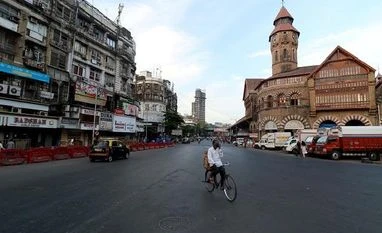Covid-19 has unprecedentedly stressed India’s urban centres, highlighting the need to reconnect contemporary urban development with public health that would offer a new dimension to the decision-making framework for healthy and resilient city planning. Going forward, our cities would need to take a closer look at the Covid-19 progression, well-being, inclusion, green recovery and the quality of life for urban residents. An intersectional and collaborative approach is essential to develop an action-oriented strategy that is capable of coping with growing complexities. There is a need to build a possible decalogue for urban policymakers in promoting actions and policies aimed to transform our cities into healthier and protective living environments:
Cities would need to prioritise mainstream public health as a part of their urban development framework. There is a need to rethink about the efficacies of planning standards and the processes of master planning, local plans, URDPFI guidelines, other development plans, etc., for human health. Covid-19 has already altered our travel patterns and the way we live and socialise. The policy landscape is changing and post-Covid urbanism is putting people at the centre of urban transformation. Today, access is considered to be more important than just mobility. A new urban-planning paradigm called the ‘15-minute city’ is increasingly gaining popularity. Under this model, cities are attempting to provide their residents with essential services at walkable proximity. A few cities are on a spur to reclaim back their streets/motorways and convert them for more human-centric usage.
Besides, cities also need to embrace evolving components such as Covid-19 care services, temperature screening in public realm, spatial guidelines for containment against communicable diseases, social distancing and crowd control, health-emergency preparedness and sanitisation in their planning process.
Cities would need to realign their municipal budgets for creation and operation of urban health amenities. There is a need to converge ongoing efforts under a single city health plan and leverage innovative financing mechanisms to overcome the challenges of urban health infrastructure investment for building a robust healthcare system.
Cities should promptly integrate smart technology and digital platforms. While ‘war rooms’ would become a must-have for crisis management, unified digital platforms would make delivery of basic urban services (such as water supply, solid waste management and sanitation) intelligent and citizen centric. Covid-19 has led to a wide adoption of digital platforms for health monitoring (Singapore’s Trace Together, India’s Arogya Setu, etc.,) which can be further strengthened and integrated to enable evidence-based decision making.
Cities need to innovate with their legacy data, open data and advance analytics to build resilience. Efficient and capable healthcare and surveillance systems alone are not sufficient to ensure success during crises. Cities need to build on open-data platforms, simulative health-risk models, comprehensive citizen health indexes, community screening, asset optimisation, traceability and visibility to the supply chain of public resources, and vulnerability hot spotting to proactively combat future health and allied risks.
There is an urgent imperative to start strengthening basic urban services at the smallest urban unit through formulating neighbourhood service plans for assessing self-sufficiency, adequacy and equitable distribution of basic urban amenities such as potable water, effective sanitation services, reliable solid waste and drainage management, and shelter, along with access to education, employment, food and healthcare services as priority activities.
The increased concern around higher fatalities due to lifestyle diseases is reopening the larger debate of psychological and physical well-being. Access to open public spaces, vitality of green spaces, parks, sports facilities, provisions for toddler and elderly care would play pivotal roles in defining healthy cities for future. (Cities and citizens have already resorted to opting urban do-it-yourselves (DIYs)/ tactics for redesigning safer public spaces and transit nodes. Rethinking accessibility, designing of outdoor shared living spaces, building typologies and fostering the presence of semiprivate or collective spaces can contribute to the physical, mental and social well-being of people.
Cities must also take swift and bold actions to build back from the pandemic, along with focusing on tackling climate change. Going forward, adopting nature-based solutions for enhancing the urban living environment needs to be mainstreamed. In the long term, cities would need to develop a set of clear roadmaps for climate action, clean air plan, electronic vehicle (EV) popularisation and waste circularity for their green and sustained recovery. Cities need to stabilise, protect businesses and build resilient local economies during economic uncertainty. They need focused strategies for disproportionately affected segments such as migrant workers for economic well-being.
The pandemic has revealed a new world of multiple and compounded risks which require to be addressed through community efforts. Cities need to build stronger behaviour-change models for inducing community resilience. They would need to unify the potential of media, grassroots-level organisations, information literacy, cellular penetration and local channels for empowering residents for practising desired civic norms.
By considering these dimensions holistically and moving towards targeting these deep-seated inequalities and deprivation, changemaker and development practitioners will be better positioned to mitigate future risks and build resilience. Today, cities have a once-in-a-lifetime chance to leverage the pandemic and build back resiliently. It is the future of cities that will shape the post-Covid world.
(The views expressed are personal. Shivanshu Chauhan is Leader Urban Infrastructure at PwC India and Ishita Aryan is Sr. Consultant.)
Unlock 30+ premium stories daily hand-picked by our editors, across devices on browser and app.
Pick your 5 favourite companies, get a daily email with all news updates on them.
Full access to our intuitive epaper - clip, save, share articles from any device; newspaper archives from 2006.
Preferential invites to Business Standard events.
Curated newsletters on markets, personal finance, policy & politics, start-ups, technology, and more.
)